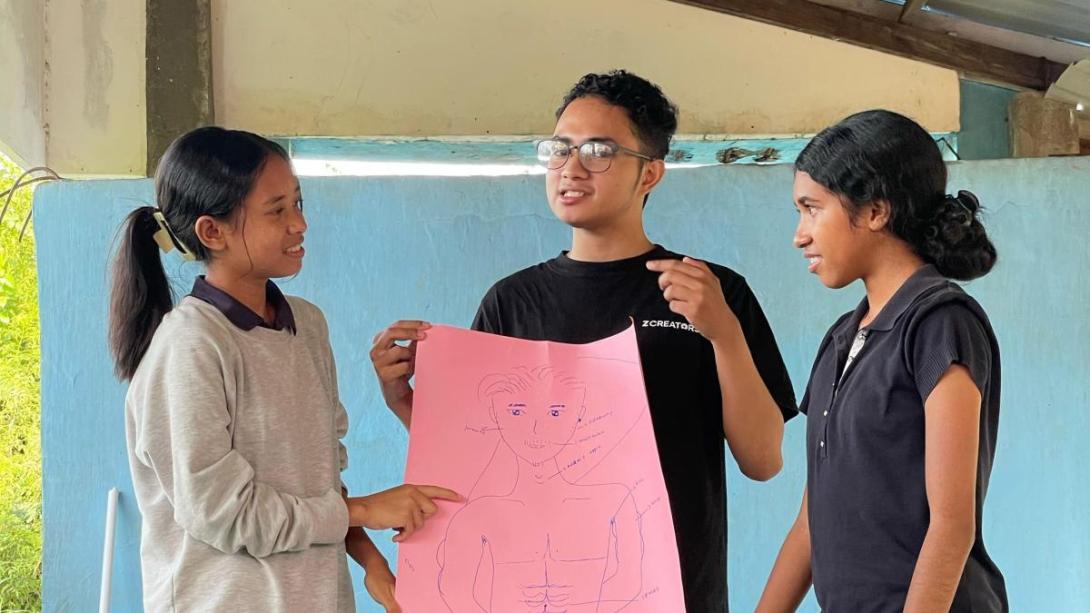
“This project helped us discover how silence around reproductive health can be broken with the right tools and the right people.”
The overall aim of the project is to find the factors that become obstacles to implementing comprehensive sexuality education in rural areas and appropriate methods for providing this education.
Main Objectives:
- Build the skill and confidence of young researchers with diverse backgrounds to be able to run a co-design project.
- Establish initial communication with the youth community in the village, parents of children, health workers, and religious leaders to better understand the issues and conditions.
- Understanding and obtaining conditions and situations related to sexuality education for adolescents in rural areas.
Mariana Yunita H. Opat (Tata) designed her action project to explore and address barriers to comprehensive sexuality education (CSE) in rural Indonesia, particularly how such education is (or is not) discussed at home between parents and children. Through a co-design process, she involved young researchers, parents, teenagers, teachers, and health workers to map community understanding, identify communication gaps, and create culturally appropriate learning tools. The project focused on recognizing the limited conversations about reproductive health within families and identifying creative ways to bridge these gaps.

In Phase 1, the team engaged 18 teenagers and 5 parents, facilitating discussions and developing teaching aids through collaborative design. Due to logistical and communication challenges, Phase 2 shifted to focus on two youth-based community groups—one of which was a deaf community. These groups were trained as peer educators, learning how to use the co-designed teaching aids to deliver sexuality education more effectively. The learning tools included three physical teaching aids, one educator guidebook, and three illustrated zines, which were later tested and used in training sessions.
The project successfully sparked awareness and skill-building in both mainstream and marginalized youth communities. In collaboration with the IPAS Foundation, the teaching tools were presented during the CMIIW (Correct Me If I’m Wrong) event, reaching 130 teenagers in Kupang City. Testimonials from this session indicated that the tools helped make reproductive health education more accessible and understandable. The project also initiated the development of a draft for sexual violence prevention guidelines in coordination with local health workers, showing promising steps toward systemic change.

